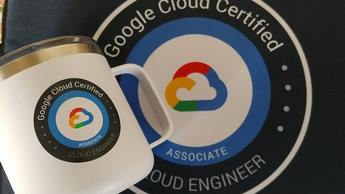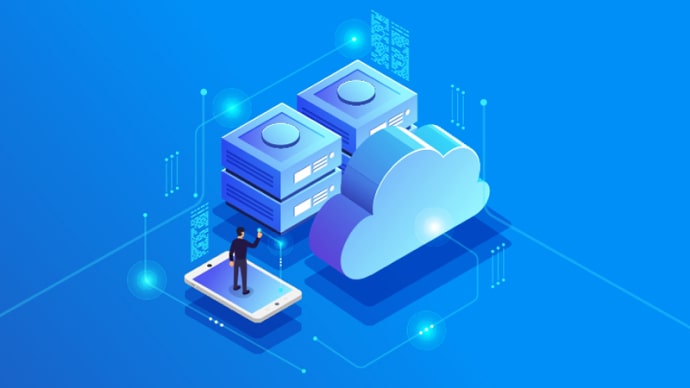Use VCE Exam Simulator to open VCE files

100% Latest & Updated Google Professional ChromeOS Administrator Practice Test Questions, Exam Dumps & Verified Answers!
30 Days Free Updates, Instant Download!
Professional ChromeOS Administrator Premium File

Google Professional ChromeOS Administrator Practice Test Questions, Google Professional ChromeOS Administrator Exam Dumps
With Examsnap's complete exam preparation package covering the Google Professional ChromeOS Administrator Test Questions and answers, study guide, and video training course are included in the premium bundle. Google Professional ChromeOS Administrator Exam Dumps and Practice Test Questions come in the VCE format to provide you with an exam testing environment and boosts your confidence Read More.
In today’s fast-paced digital landscape, cloud computing has become a critical component of business operations. Organizations are increasingly relying on cloud platforms to manage infrastructure, deploy applications, and process data efficiently. Professionals with cloud skills are in high demand, and certifications provide a way to validate these abilities. Earning a credential demonstrates both expertise and commitment to staying current in the evolving cloud ecosystem.
Google Cloud Platform, commonly known as GCP, is recognized as a leading provider in the cloud computing industry. It offers a wide range of services, including compute, storage, networking, data analytics, and artificial intelligence tools. Businesses of all sizes use GCP to streamline operations, innovate faster, and scale effectively. For IT professionals, gaining certification in Google Cloud not only validates knowledge but also enhances career growth opportunities.
Cloud certifications provide a structured pathway for learning, starting with foundational concepts and advancing to role-specific expertise. Whether you are just beginning your cloud journey or already have experience in IT operations, understanding the certification paths available is critical for career planning.
Google Cloud certifications are designed to evaluate skills across a variety of roles and technical areas. These certifications are organized into three primary levels: fundamental, associate, and professional. Each level builds upon the previous one, allowing individuals to gradually develop deeper technical knowledge and practical skills.
Fundamental certifications introduce core cloud concepts and provide a strategic understanding of cloud applications for business leaders and non-technical professionals. Associate-level certifications focus on operational skills for managing cloud environments, often serving as a first technical credential. Professional-level certifications target advanced expertise in specific cloud roles, demonstrating leadership and specialized technical knowledge.
This hierarchical structure ensures that learners can progress logically, acquiring knowledge that aligns with real-world responsibilities. It also provides clarity for professionals planning their career paths, helping them prioritize certifications that match their current experience and long-term goals.
Earning a Google Cloud certification offers multiple benefits for professionals at every stage of their careers. Certifications provide formal recognition of cloud expertise, enhancing credibility with employers and colleagues. They can be a differentiator in competitive job markets, signaling both technical competence and dedication to continuous learning.
Certifications also guide career development by highlighting which skills are most relevant to different roles. For example, a professional aiming to become a cloud architect can start with foundational and associate certifications before pursuing the Professional Cloud Architect credential, which focuses on designing and managing scalable and secure cloud environments.
Beyond technical knowledge, certifications improve communication between technical teams and business stakeholders. Professionals with certification can explain cloud solutions in business terms, help prioritize projects, and align technology initiatives with organizational goals. This skill is particularly valuable for bridging gaps in organizations where technical and business teams must collaborate effectively.
Before pursuing any certification, it is important to evaluate your current knowledge and professional objectives. Assessing your experience in IT, cloud computing, and data management can help determine the most appropriate certification path. Individuals new to cloud technology may benefit from starting with fundamental certifications to build a strong base of knowledge. Those with some technical background might choose associate-level certifications to validate operational skills, while those aiming for advanced roles or leadership positions should consider professional certifications.
Career goals play a crucial role in certification planning. If your aim is to become a cloud architect, you will need a strong foundation in cloud infrastructure, security, and architecture design. Following a progression from fundamental to professional certifications ensures that you acquire the necessary skills in a logical sequence. Similarly, professionals interested in data analytics, security, or cloud development will benefit from pursuing certifications that align with their specialization.
Careful assessment helps avoid unnecessary frustration and ensures that each certification pursued contributes meaningfully to career growth. It also provides clarity on the types of projects and hands-on experience needed to succeed in exams and real-world roles.
Fundamental certifications are intended for learners who are new to cloud computing or occupy non-technical roles. The Cloud Digital Leader credential is one of the most widely recognized fundamental certifications, designed to introduce core concepts and the business value of cloud technologies. This certification is ideal for project managers, business analysts, sales teams, and anyone interested in how cloud solutions drive organizational success.
The certification focuses on understanding essential cloud terminology, Google Cloud services, and the impact of cloud adoption on business outcomes. Candidates also learn to evaluate cloud solutions for their potential benefits, including cost optimization, operational efficiency, and innovation. By earning this credential, professionals gain strategic insights that enable them to contribute effectively to cloud-related decision-making.
Exam preparation for fundamental certifications typically emphasizes conceptual understanding rather than hands-on technical skills. Multiple-choice exams test knowledge of cloud principles, service offerings, and business use cases. Learners are encouraged to use official documentation, online tutorials, and structured training programs to build a solid foundation before progressing to more technical certifications.
Fundamental certifications are particularly valuable for individuals who serve as a bridge between business and technical teams. Professionals who earn this credential can communicate cloud concepts clearly, support adoption strategies, and help ensure that technology investments align with organizational objectives.
Associate-level certifications, such as the Associate Cloud Engineer, are designed for professionals responsible for deploying, managing, and operating applications on Google Cloud. This certification validates practical, hands-on skills and serves as a foundation for professional-level credentials.
Key responsibilities for an Associate Cloud Engineer include setting up cloud environments, managing resources, configuring access and security, and monitoring operations. Candidates must demonstrate the ability to troubleshoot issues and maintain efficient cloud deployments.
Exam formats for associate-level certifications often include multiple-choice questions, multiple-select items, and scenario-based exercises. Hands-on practice is critical for success, and candidates are encouraged to use Google Cloud’s free tier to gain practical experience. Participating in labs, workshops, and guided projects helps reinforce skills and prepares learners for real-world challenges.
The Associate Cloud Engineer certification is an essential milestone for those pursuing a cloud-focused career. It validates operational knowledge, builds confidence, and provides a pathway to more specialized professional certifications. Professionals who achieve this credential are well-positioned for roles such as cloud administrator, cloud operator, or cloud infrastructure specialist. Additionally, for IT staff managing end-user devices, certifications such as Professional ChromeOS Administrator complement the cloud-focused skills acquired through associate-level credentials, highlighting expertise in both device and infrastructure management.
Professional certifications demonstrate advanced proficiency in specific cloud roles and are highly valued by employers. Google Cloud offers several professional certifications, including Professional Cloud Architect, Professional Data Engineer, Cloud Developer, Cloud Network Engineer, and Cloud Security Engineer. Each certification focuses on specialized skills, reflecting real-world responsibilities in cloud implementation and management.
The Professional Cloud Architect certification emphasizes designing, developing, and managing scalable cloud solutions. Candidates are expected to have strong knowledge of architecture design, security compliance, hybrid and multi-cloud environments, and cost optimization. Preparation involves studying best practices, engaging in hands-on labs, and completing projects that simulate real-world scenarios.
Professional Data Engineer certification targets individuals working with data systems, analytics pipelines, and machine learning models. Skills include data ingestion, storage, transformation, visualization, and compliance with security standards. Certified data engineers are well-prepared for roles in analytics, AI development, and data-driven decision-making.
Other professional certifications, such as Cloud Developer and Cloud Network Engineer, provide opportunities to specialize in application development, cloud networking, or security. Professionals who earn these certifications can pursue leadership positions, manage complex projects, and guide organizational cloud strategies. For teams managing enterprise devices, the Professional ChromeOS Administrator credential enhances expertise in device configuration and policy management, complementing broader cloud knowledge.
Choosing the right certification path requires careful consideration of experience, job aspirations, and career trajectory. Individuals new to cloud computing or in non-technical roles should begin with the Cloud Digital Leader certification to build foundational knowledge. Those with some technical experience may pursue the Associate Cloud Engineer credential to validate operational skills. Professionals aiming for advanced technical roles should select professional certifications aligned with their specialization, whether in architecture, data, development, networking, or security.
Sequencing certifications strategically allows professionals to build skills progressively. Starting with fundamental concepts, moving to operational competence, and finally advancing to specialized expertise ensures a comprehensive understanding of cloud technologies. This structured approach enhances learning outcomes and provides a clear roadmap for professional growth.
Planning a certification path also involves identifying resources, such as hands-on labs, study guides, and online courses, to maximize preparation. Professional ChromeOS Administrator credentials can be included in this progression for IT staff managing end-user devices, ensuring that device management skills complement cloud expertise.
Google Cloud certifications offer numerous career advantages. Certified professionals are recognized for their skills and often have a competitive edge in the job market. They are better equipped to take on roles such as cloud engineer, cloud architect, data engineer, developer, or security specialist. Certifications also provide opportunities for leadership roles, project management positions, and consultancy engagements.
In addition, certified professionals can contribute more effectively to cloud adoption strategies within their organizations. They can communicate technical concepts to non-technical stakeholders, align solutions with business goals, and optimize cloud investments. For professionals managing enterprise devices, pairing cloud certifications with the Professional ChromeOS Administrator credential demonstrates versatility, signaling both cloud and device management expertise.
Achieving certification requires a combination of study, practice, and real-world application. Google Cloud offers official learning materials, including documentation, tutorials, and the Google Cloud Skills Boost platform. These resources provide structured guidance on concepts, services, and practical exercises.
Professional training providers, such as NetCom Learning, offer instructor-led courses, self-paced modules, and workshops tailored to certification requirements. These programs help learners build practical experience, understand exam expectations, and gain insights from industry experts. Hands-on practice, including creating projects and troubleshooting scenarios, is particularly important for associate and professional-level certifications.
Cloud technology evolves rapidly, and maintaining certification ensures professionals remain current with new services and best practices. Google Cloud certifications are valid for two years, after which renewal is required. Continuous learning allows professionals to explore emerging technologies, such as artificial intelligence, hybrid cloud, and cloud security.
Engaging with advanced learning paths, attending workshops, and following industry events helps professionals stay informed about new developments and maintain competitive skills. Combining Google Cloud certifications with credentials like Professional ChromeOS Administrator strengthens expertise in both cloud infrastructure and enterprise device management, ensuring versatility in modern IT environments.
Fundamental certifications provide a solid foundation for anyone entering the world of cloud computing. They focus on core concepts, business applications, and strategic insights into how cloud technology can transform organizations. The Cloud Digital Leader certification is a key example of a fundamental credential that prepares professionals for more advanced roles without requiring deep technical expertise.
This certification is designed to help learners understand the essential components of cloud computing, including service models, deployment types, and key terminology. It also emphasizes the business value of cloud adoption, showing how technology can enhance efficiency, reduce costs, and drive innovation. For professionals aiming to align technology solutions with business goals, the Cloud Digital Leader credential is an excellent starting point.
By earning this certification, individuals gain a structured approach to learning cloud concepts. This knowledge not only supports professional growth but also enables more informed decision-making in business settings. Teams responsible for cloud strategy can leverage certified individuals to bridge the gap between technical implementation and organizational objectives.
The Cloud Digital Leader certification is ideal for professionals in business, project management, sales, and other non-technical roles. It is particularly beneficial for those responsible for evaluating cloud solutions, managing digital transformation initiatives, or supporting technical teams.
Project managers benefit from understanding cloud concepts to guide teams effectively. Sales professionals gain credibility when discussing cloud offerings with clients, demonstrating awareness of service capabilities and value propositions. Business analysts and decision-makers can use this knowledge to evaluate cloud investments and assess potential outcomes.
Even IT professionals who primarily focus on infrastructure may find this certification valuable. For example, a Professional ChromeOS Administrator managing enterprise devices can benefit from understanding cloud strategies to align device management policies with broader organizational goals. Integrating cloud knowledge with device administration expertise creates a comprehensive skill set that supports organizational initiatives.
The Cloud Digital Leader certification focuses on several core areas. First, it introduces basic cloud concepts, including public, private, and hybrid cloud models. Candidates learn how different deployment options affect scalability, security, and operational efficiency.
Second, the certification covers Google Cloud products and services. Learners gain a high-level understanding of compute, storage, networking, databases, data analytics, and artificial intelligence tools. This knowledge helps professionals evaluate which services are best suited for specific business needs.
Third, the credential emphasizes how cloud solutions influence business outcomes. Candidates explore how cloud adoption can improve productivity, streamline workflows, and drive innovation. Understanding these benefits allows professionals to make informed decisions, provide guidance to stakeholders, and support organizational objectives.
Additionally, the Cloud Digital Leader certification addresses governance, compliance, and security considerations. Professionals learn how cloud solutions can meet regulatory requirements, protect sensitive data, and mitigate risks. For IT staff such as a Professional ChromeOS Administrator, this knowledge enhances their ability to implement policies that align with security standards while supporting cloud initiatives.
The Cloud Digital Leader exam is designed to assess conceptual knowledge and understanding of cloud business applications. It typically consists of multiple-choice questions that focus on scenarios related to business decision-making and cloud adoption.
No prior technical experience is required, making this certification accessible to a broad range of professionals. Candidates are expected to demonstrate awareness of cloud principles, service capabilities, and strategic considerations rather than hands-on technical implementation.
Preparation for the exam often involves reviewing Google Cloud documentation, engaging in online learning modules, and practicing with scenario-based exercises. Structured training programs can also provide guidance on exam objectives, ensuring that candidates focus on relevant topics and gain confidence before taking the assessment.
The Cloud Digital Leader certification offers numerous advantages for both individuals and organizations. Professionals gain a recognized credential that validates their understanding of cloud concepts and business applications. This credential helps individuals stand out in competitive job markets and can support career advancement in management, project leadership, and client-facing roles.
From an organizational perspective, having certified staff improves collaboration between technical teams and business stakeholders. Professionals who understand cloud principles can provide valuable insights during project planning, resource allocation, and strategy development. For IT staff such as a Professional ChromeOS Administrator, the certification complements existing technical skills, enabling more effective integration of device management policies with cloud adoption initiatives.
Additionally, the Cloud Digital Leader credential serves as a foundation for further certifications. Professionals interested in pursuing associate or professional-level credentials benefit from starting with this certification, as it establishes a strong understanding of cloud terminology, service offerings, and business value. This foundational knowledge ensures a smoother transition to more technical and specialized certifications.
Effective preparation for the Cloud Digital Leader certification combines structured study, practice, and practical understanding of business scenarios. Candidates are encouraged to use a mix of official Google Cloud documentation, online training platforms, and practice exams to reinforce learning.
Engaging with hands-on exercises, even in non-technical capacities, helps candidates understand how cloud solutions are applied in real-world scenarios. For example, professionals may explore cloud dashboards, simulate decision-making processes, or review case studies of cloud adoption in various industries.
Structured learning programs, such as those offered by professional training providers, provide additional support. These programs include expert guidance, targeted content, and practice scenarios that mirror exam objectives. By following a consistent study plan and practicing regularly, candidates can build confidence and improve their chances of success.
IT administrators, including a Professional ChromeOS Administrator, can also integrate their practical knowledge into preparation. Understanding how cloud strategies influence device management, security policies, and end-user support helps reinforce the broader context of cloud adoption. This holistic understanding is valuable for professionals seeking to combine cloud knowledge with technical expertise.
The knowledge gained from the Cloud Digital Leader certification is directly applicable to many workplace scenarios. Professionals can evaluate cloud services to determine the most suitable solutions for business challenges. They can also support digital transformation initiatives by identifying opportunities to optimize processes, improve collaboration, and reduce operational costs.
In project management, certified individuals can facilitate communication between business stakeholders and technical teams. Understanding cloud terminology and service capabilities enables them to translate technical requirements into actionable plans and ensure alignment with organizational goals.
Sales teams benefit from the ability to discuss cloud offerings confidently with clients, highlighting the benefits of specific services, cost savings, and scalability options. For IT staff such as a Professional ChromeOS Administrator, this knowledge helps in aligning device deployment and management strategies with cloud-based solutions, creating an integrated technology ecosystem.
While the Cloud Digital Leader certification is non-technical, it provides valuable context for IT professionals working in operational roles. Understanding the strategic impact of cloud solutions allows professionals to make more informed decisions about infrastructure, resource allocation, and device management.
For example, a Professional ChromeOS Administrator can apply cloud knowledge to enhance enterprise device management, integrating Google Workspace tools, security policies, and compliance requirements. This integration improves efficiency, reduces risk, and aligns device management strategies with broader organizational goals.
By combining cloud knowledge with technical expertise, professionals are better positioned to contribute to strategic initiatives, support team collaboration, and drive successful cloud adoption within their organizations.
Several resources are available for preparing for the Cloud Digital Leader certification. Google Cloud offers comprehensive documentation, tutorials, and online learning modules that cover core concepts and business applications. These materials provide a structured approach to learning, ensuring that candidates focus on the most relevant topics.
Professional training programs also offer valuable support. Courses led by experienced instructors provide guidance on exam objectives, real-world application scenarios, and best practices. Practice exams and scenario-based exercises help candidates identify areas for improvement and gain confidence in their knowledge.
For IT administrators such as a Professional ChromeOS Administrator, leveraging both cloud-focused and device management resources creates a well-rounded preparation strategy. This combination ensures that professionals understand how cloud solutions integrate with enterprise device management, security policies, and organizational workflows.
Cloud technology is constantly evolving, and staying current is essential for maintaining relevance in the industry. Professionals who earn the Cloud Digital Leader certification are encouraged to continue learning about emerging services, best practices, and industry trends.
Continuous learning not only supports career growth but also prepares individuals for more advanced certifications. Professionals can transition from the foundational Cloud Digital Leader credential to associate or professional-level certifications, deepening their technical skills and expanding their career opportunities.
For those in technical roles, including a Professional ChromeOS Administrator, continuous learning ensures that device management practices remain aligned with the latest cloud capabilities, security updates, and compliance requirements. Combining ongoing cloud education with hands-on device administration expertise creates a versatile skill set that is highly valued in modern IT environments.
To succeed in the Cloud Digital Leader exam, candidates should focus on several key strategies. First, create a structured study plan that covers all exam objectives, allocating time for both conceptual understanding and practical application.
Second, leverage hands-on exercises and case studies to reinforce knowledge. Exploring how cloud solutions are implemented in real business scenarios helps candidates connect theoretical concepts to practical decision-making.
Third, participate in practice exams and scenario-based assessments to identify strengths and areas for improvement. These exercises build confidence, improve time management, and familiarize candidates with the types of questions they may encounter.
Finally, integrate professional experience whenever possible. IT administrators, such as a Professional ChromeOS Administrator, can draw on their practical knowledge to contextualize learning, understanding how cloud adoption affects devices, security, and user management within an organization.
The Associate Cloud Engineer certification is a critical credential for IT professionals looking to validate their hands-on cloud operational skills. Unlike fundamental certifications, which focus on conceptual understanding and business applications, the Associate Cloud Engineer exam assesses practical knowledge and the ability to deploy, manage, and operate applications on Google Cloud Platform.
This certification is often the first technical credential for cloud practitioners and serves as a foundation for professional-level certifications. It is suitable for IT professionals, system administrators, developers, and anyone responsible for managing cloud resources in real-world environments. Even professionals focused on enterprise device management, such as a Professional ChromeOS Administrator, can benefit from this certification to enhance their operational capabilities and align device policies with cloud infrastructure.
The Associate Cloud Engineer certification ensures that professionals are capable of handling cloud projects from end to end. It emphasizes hands-on skills, scenario-based problem solving, and the practical application of Google Cloud services. As organizations increasingly migrate workloads to the cloud, the demand for certified Associate Cloud Engineers continues to grow.
Professionals pursuing this certification are expected to manage day-to-day cloud operations effectively. Key responsibilities include setting up cloud environments, deploying resources, configuring access controls, monitoring performance, and troubleshooting operational issues.
Setting up cloud environments involves creating projects, managing billing accounts, and organizing resources logically. Candidates learn to deploy applications and services efficiently while ensuring they adhere to best practices in security and compliance.
Resource management covers tasks such as creating virtual machines, managing storage solutions, configuring databases, and ensuring networking components are correctly established. Understanding how to monitor usage, performance, and costs is critical to maintaining operational efficiency.
Security management is another essential area. Associate Cloud Engineers must configure access permissions, manage identity and access management policies, and ensure that data is protected according to organizational standards. Professionals such as a Professional ChromeOS Administrator can integrate these skills with device management, ensuring that endpoint devices and cloud resources operate within secure frameworks.
The Associate Cloud Engineer exam assesses a variety of technical skills. Candidates must demonstrate the ability to deploy applications, manage cloud resources, monitor operations, and resolve common issues. Hands-on experience is critical, as the exam includes scenario-based questions that mirror real-world challenges.
Key knowledge areas include understanding Google Cloud compute options, networking configurations, storage solutions, and database management. Candidates must also be familiar with identity and access management, resource monitoring, logging, and troubleshooting practices.
Additionally, the certification evaluates candidates’ ability to implement cost management strategies, ensuring efficient resource utilization without overspending. For professionals like a Professional ChromeOS Administrator, understanding these principles is valuable for coordinating cloud infrastructure with device management and enterprise policy enforcement.
The Associate Cloud Engineer exam consists of multiple-choice, multiple-select, and scenario-based questions. Candidates are required to demonstrate their practical knowledge of cloud operations and problem-solving capabilities. The scenarios presented often reflect real organizational challenges, requiring candidates to apply best practices and make informed decisions.
Exam preparation should focus on both theoretical knowledge and hands-on experience. Google Cloud provides official documentation, online labs, and sample questions to help candidates understand exam expectations. Training programs offered by providers such as NetCom Learning offer structured guidance, hands-on labs, and practice scenarios that replicate real-world cloud environments.
Hands-on practice is essential for success in the Associate Cloud Engineer exam. Candidates should actively engage with Google Cloud’s free tier to create projects, deploy applications, and experiment with various services. Practicing with virtual machines, storage solutions, and networking configurations helps reinforce theoretical knowledge.
Scenario-based practice is particularly important. Candidates should simulate real-world tasks such as setting up new projects, configuring virtual networks, managing access permissions, and troubleshooting operational issues. By engaging in hands-on exercises, candidates develop the confidence and practical skills necessary to succeed in the exam and in their professional roles.
IT professionals such as a Professional ChromeOS Administrator can leverage these exercises to understand how cloud policies affect device management and organizational security. Integrating cloud and device knowledge ensures more effective coordination between infrastructure and end-user environments.
The Associate Cloud Engineer certification provides tangible benefits for career growth. It validates operational skills, enhances credibility with employers, and positions professionals for advanced certifications. Certified individuals are recognized as capable of managing cloud environments efficiently and applying best practices to real-world scenarios.
Organizations also benefit from having certified staff. Associate Cloud Engineers can ensure that cloud deployments are optimized, secure, and aligned with business objectives. Professionals in this role can reduce operational risks, improve efficiency, and support the implementation of cloud strategies.
For IT administrators like a Professional ChromeOS Administrator, earning this certification demonstrates a versatile skill set that combines cloud operations expertise with device management capabilities. This combination enhances employability and opens opportunities for roles that require both infrastructure and endpoint management proficiency.
Preparation for the Associate Cloud Engineer exam should include several key strategies. First, candidates should engage in structured learning, using official Google Cloud documentation, online tutorials, and comprehensive training programs. These resources provide a clear roadmap for understanding services, configurations, and operational procedures.
Second, hands-on practice is essential. Candidates should build real projects, deploy applications, configure resources, and troubleshoot common issues. The more experience a candidate gains through practical exercises, the more comfortable they will be with scenario-based questions in the exam.
Third, practice exams and review of sample scenarios help candidates identify knowledge gaps and improve time management. Understanding how to approach questions efficiently and apply best practices is crucial for success.
Finally, integrating professional experience into preparation is beneficial. IT staff such as a Professional ChromeOS Administrator can contextualize cloud operations knowledge within device management and organizational workflows. This integration creates a holistic understanding of how cloud and device management intersect in enterprise environments.
The skills gained through the Associate Cloud Engineer certification are directly applicable in professional environments. Certified engineers are equipped to deploy cloud applications, manage resources, and troubleshoot operational issues effectively.
In addition, certified professionals can contribute to organizational cloud strategies. By understanding cloud infrastructure, security policies, and operational monitoring, they help ensure that cloud environments are optimized, cost-effective, and compliant with regulations.
For IT administrators like a Professional ChromeOS Administrator, these skills can be applied to align endpoint devices with cloud policies, enforce security controls, and streamline workflows. This coordination between cloud infrastructure and device management improves operational efficiency and reduces risks associated with misconfigured systems.
While the Associate Cloud Engineer certification validates foundational operational skills, it also serves as a stepping stone to professional-level certifications. Professionals can progress to roles such as Professional Cloud Architect, Professional Data Engineer, or Cloud Security Engineer, depending on their interests and career goals.
Continuous learning is essential in this progression. Cloud technology evolves rapidly, and staying current with new services, features, and best practices ensures that professionals remain competitive. Certified Associate Cloud Engineers who continue developing their skills are well-positioned for leadership roles, advanced technical positions, and specialized areas of expertise.
For IT professionals including a Professional ChromeOS Administrator, combining cloud operations knowledge with device management expertise provides a versatile and in-demand skill set. This combination supports career growth in infrastructure management, security administration, and enterprise device strategies.
To prepare effectively for the Associate Cloud Engineer certification, candidates should leverage a variety of resources. Google Cloud’s official documentation, tutorials, and free labs provide foundational knowledge and practical exercises.
Professional training programs, such as those offered by NetCom Learning, offer structured guidance, expert instruction, and hands-on labs that simulate real-world scenarios. These programs also provide opportunities to practice scenario-based questions, reinforcing understanding and building confidence for the exam.
IT professionals like a Professional ChromeOS Administrator can integrate cloud-focused training with device management practices. Understanding how cloud policies affect device deployment, access control, and security configurations ensures that administrators can manage both cloud infrastructure and enterprise endpoints effectively.
Several practical strategies can enhance preparation for the Associate Cloud Engineer exam. First, create a structured study plan that balances theoretical learning with hands-on practice. Set aside dedicated time to experiment with cloud services, deploy applications, and configure resources.
Second, participate in scenario-based exercises to simulate real-world challenges. This approach helps candidates apply knowledge, make informed decisions, and develop problem-solving skills.
Third, take practice exams to identify areas of weakness, improve time management, and build confidence. Understanding the format of questions and practicing decision-making under time constraints is essential for success.
Finally, leverage professional experience wherever possible. IT staff, including a Professional ChromeOS Administrator, can use their practical knowledge of device management and infrastructure operations to contextualize learning. Integrating existing expertise with new cloud skills creates a holistic understanding of both operational and strategic requirements.
Professional certifications in Google Cloud are designed for individuals who want to demonstrate advanced expertise in specialized areas of cloud computing. These credentials go beyond fundamental and associate-level knowledge, validating the ability to design, implement, and manage complex cloud solutions.
Earning a professional certification signifies that a candidate has the skills required to lead projects, manage infrastructure, and solve real-world technical challenges. These certifications are highly valued by employers and can open doors to senior technical roles, leadership positions, and consulting opportunities. Professionals in technical roles, including a Professional ChromeOS Administrator, benefit from these credentials by enhancing their career trajectory and expanding their capabilities in enterprise environments.
Professional certifications are particularly relevant in organizations where cloud adoption is central to business strategy. Professionals with these credentials can influence technology decisions, optimize operations, and provide guidance on cost management, security, and compliance. They serve as a bridge between technical teams, business stakeholders, and executive leadership, ensuring that cloud initiatives align with organizational goals.
Google Cloud offers several professional certifications targeting different roles and specialties. Some of the most sought-after credentials include Professional Cloud Architect, Professional Data Engineer, Cloud Security Engineer, Cloud Developer, and Cloud Network Engineer. Each certification focuses on specific technical skills and responsibilities.
The Professional Cloud Architect certification emphasizes the design, development, and management of scalable, secure, and cost-effective cloud solutions. Candidates must demonstrate knowledge of architecture best practices, security compliance, hybrid and multi-cloud environments, and operational efficiency.
The Professional Data Engineer certification is tailored for professionals working with large-scale data processing, analytics, and machine learning. This credential validates the ability to design, build, and operationalize data pipelines, models, and visualization tools while ensuring data security and compliance.
Cloud Security Engineer certification focuses on implementing security measures, managing access controls, and protecting cloud infrastructure from threats. Cloud Developers and Cloud Network Engineers are specialized roles that require expertise in application development and cloud networking, respectively. For IT professionals, including a Professional ChromeOS Administrator, these certifications can complement operational skills by integrating security, development, or network management expertise with device administration.
The Professional Cloud Architect certification is widely recognized as a top credential for cloud professionals. It validates the ability to design robust cloud architectures, manage resources efficiently, and implement security and compliance measures.
Candidates are expected to have extensive knowledge of Google Cloud services, architecture patterns, and best practices. They must demonstrate the ability to design solutions that meet business objectives, optimize performance, and manage costs effectively. Hands-on experience is essential, as the exam includes scenario-based questions that replicate real-world challenges.
Preparation strategies include studying Google Cloud documentation, engaging in hands-on labs, participating in workshops, and completing practice exams. Structured courses from providers such as NetCom Learning can provide additional guidance, expert instruction, and real-world scenarios that enhance understanding.
Professionals who earn this certification can lead cloud projects, make architecture decisions, and guide technical teams. IT administrators like a Professional ChromeOS Administrator can apply this knowledge to align device management strategies with cloud infrastructure, ensuring seamless integration and enhanced operational efficiency.
The Professional Data Engineer certification focuses on data-driven decision-making and operationalization of analytics solutions. Candidates learn to design data ingestion pipelines, manage storage and transformation, build machine learning models, and visualize insights for business impact.
Key areas of expertise include ensuring data quality, compliance, and security, as well as leveraging Google Cloud tools for data processing, analysis, and machine learning. Candidates are assessed on their ability to implement practical solutions to real-world challenges using Google Cloud services.
Hands-on practice is crucial for success. Candidates should work with datasets, build and deploy models, and simulate analytical workflows. Structured learning programs, labs, and guided projects help reinforce skills and ensure readiness for scenario-based exam questions. Professionals such as a Professional ChromeOS Administrator can integrate this knowledge with enterprise device management, ensuring that data governance, access control, and security policies are consistently applied across cloud and device environments.
The Cloud Security Engineer certification validates expertise in securing cloud environments and protecting organizational data. Candidates are expected to configure identity and access management policies, implement security controls, monitor systems for threats, and ensure compliance with regulatory requirements.
This certification is increasingly important as organizations adopt cloud services for critical workloads. Professionals who earn this credential play a vital role in protecting infrastructure, minimizing risks, and maintaining trust with stakeholders.
Preparation includes studying security best practices, engaging in hands-on exercises, and learning to apply security tools in Google Cloud environments. Professionals in technical roles, including a Professional ChromeOS Administrator, benefit from this credential by integrating device management security policies with cloud infrastructure, creating a cohesive and secure enterprise ecosystem.
The Cloud Developer certification targets professionals responsible for designing, building, and deploying applications on Google Cloud. Candidates learn to use Google Cloud services to develop scalable and reliable applications, implement CI/CD pipelines, and optimize performance.
The Cloud Network Engineer certification focuses on designing and managing cloud networking solutions. Candidates demonstrate proficiency in configuring networks, implementing hybrid connectivity, troubleshooting network issues, and ensuring secure and efficient communication between cloud resources.
Both certifications require hands-on experience and practical problem-solving skills. IT professionals like a Professional ChromeOS Administrator can complement these certifications by applying cloud policies and network configurations to endpoint devices, enhancing security, and streamlining operational workflows.
Professional certifications typically involve scenario-based questions, multiple-choice questions, and real-world problem-solving tasks. Candidates must demonstrate both theoretical knowledge and practical application of Google Cloud services in complex environments.
Effective preparation strategies include following structured training programs, using official documentation, participating in hands-on labs, and engaging in practice exams. Real-world projects and exercises simulate the challenges professionals encounter in their roles, building confidence and reinforcing knowledge.
Professionals in roles such as a Professional ChromeOS Administrator can leverage their practical experience in enterprise device management to contextualize exam scenarios. Understanding how cloud solutions interact with endpoint devices enhances problem-solving capabilities and supports a holistic approach to cloud architecture, security, and operations.
Professional certifications offer numerous career advantages. They validate advanced technical expertise, enhance credibility, and position professionals for leadership roles. Certified individuals are often considered for senior positions, project management responsibilities, and specialized technical roles.
Organizations benefit by having certified staff who can lead projects, optimize operations, and implement best practices. Certified professionals can reduce risks, improve efficiency, and ensure that cloud solutions meet business objectives.
For IT administrators such as a Professional ChromeOS Administrator, professional certifications demonstrate versatility and technical depth. Combining cloud expertise with device management skills increases employability, opens new career opportunities, and strengthens the ability to contribute to strategic initiatives.
The knowledge gained from professional certifications can be applied to a wide range of real-world scenarios. Certified Cloud Architects design scalable solutions that meet organizational needs, Data Engineers build and operationalize analytical pipelines, and Security Engineers implement robust security measures to protect infrastructure.
In enterprise environments, professionals integrate these skills with other IT functions. A Professional ChromeOS Administrator, for example, can ensure that device policies, user access controls, and security configurations are aligned with cloud infrastructure best practices. This integration improves operational efficiency, enhances security, and supports a cohesive technology environment.
Professional certifications also provide the skills necessary to guide teams, influence technology decisions, and align cloud initiatives with strategic business goals. Individuals can participate in high-level planning, project oversight, and decision-making processes, positioning themselves as valuable contributors to organizational success.
Professional certifications are valid for a limited period and require renewal to remain current. Continuous learning is essential to stay up to date with evolving Google Cloud services, emerging technologies, and industry best practices.
Engaging with workshops, labs, and advanced training programs allows professionals to deepen expertise, specialize in emerging areas, and maintain relevance in a competitive industry. Certified individuals are well-positioned to pursue advanced roles, such as cloud solution architects, senior data engineers, and security specialists.
For IT staff such as a Professional ChromeOS Administrator, ongoing learning ensures that both device management and cloud infrastructure knowledge remain current. This combination supports career growth and enhances the ability to lead projects, implement policies, and optimize operations across both endpoints and cloud resources.
Several resources are available for preparing for professional certifications. Google Cloud provides official documentation, online labs, tutorials, and practice exams. These materials offer structured guidance and reinforce practical understanding of complex topics.
Professional training providers, including NetCom Learning, offer structured courses, expert-led instruction, and hands-on labs. These programs provide real-world scenarios, practice exercises, and guidance that help candidates build confidence and improve exam readiness.
IT professionals such as a Professional ChromeOS Administrator can combine cloud-focused training with device management expertise. Understanding how cloud services interact with endpoints, security policies, and operational workflows ensures comprehensive preparedness and supports effective application of knowledge in professional settings.
Achieving Google Cloud certification requires careful planning, consistent study, and hands-on practice. Success in certification exams is not solely about memorizing concepts; it involves understanding how to apply knowledge in practical scenarios. Exam preparation strategies can help professionals approach the process systematically and maximize their chances of success.
Preparation begins with understanding the exam objectives, structure, and question types. Google Cloud exams typically include multiple-choice, multiple-select, and scenario-based questions that assess both theoretical understanding and practical problem-solving abilities. Knowing what to expect reduces anxiety and allows candidates to focus on mastering the material.
Structured preparation is particularly important for IT professionals, including a Professional ChromeOS Administrator, who may already have technical experience but need to bridge the gap between hands-on knowledge and exam-specific requirements. A systematic approach ensures that all relevant topics are covered while reinforcing practical skills.
Using high-quality study materials is essential for effective exam preparation. Google Cloud provides official documentation, training modules, tutorials, and practice exercises. These resources are aligned with exam objectives and cover a wide range of services, tools, and concepts.
In addition to official resources, professional training providers offer structured courses, expert-led instruction, and hands-on labs that replicate real-world scenarios. Programs from providers such as NetCom Learning allow learners to engage with practical exercises, receive guidance from instructors, and benefit from targeted study strategies.
Books, practice questions, and online forums can supplement formal training. They provide additional perspectives, reinforce key concepts, and offer insights into common challenges candidates face. Professionals like a Professional ChromeOS Administrator can leverage these materials to integrate practical experience with structured learning, ensuring a holistic understanding of cloud operations and management.
Hands-on experience is crucial for success in Google Cloud exams. Theory alone is insufficient to develop the problem-solving and operational skills that exams test. Candidates should actively engage with cloud services, create projects, deploy applications, and experiment with configurations.
Simulating real-world scenarios is particularly beneficial. Tasks such as setting up environments, managing access controls, configuring networks, and troubleshooting operational issues help candidates understand the practical applications of cloud concepts. Scenario-based practice also builds confidence in decision-making under time constraints.
For IT professionals, including a Professional ChromeOS Administrator, hands-on practice can involve integrating cloud operations with enterprise device management. Understanding how cloud policies affect endpoint security, access, and compliance helps develop a more comprehensive skill set that aligns with organizational needs.
Effective time management is an essential component of exam success. Candidates should familiarize themselves with the exam format, allocate time for each section, and practice completing questions within the allotted period.
Developing strategies for approaching different question types is also critical. Multiple-choice and multiple-select questions require careful reading and elimination of incorrect options, while scenario-based questions demand analytical thinking and application of best practices.
Mock exams and timed practice sessions help candidates build proficiency, identify weak areas, and develop a methodical approach to answering questions. Professionals like a Professional ChromeOS Administrator can use these strategies to improve accuracy, efficiency, and confidence during the exam.
Many candidates face common challenges when preparing for Google Cloud exams. These challenges include understanding complex service integrations, managing time during scenario-based questions, and applying theoretical knowledge in practical situations.
To overcome these challenges, candidates should break down complex topics into manageable segments, practice consistently, and focus on areas of weakness. Engaging with peers, joining study groups, and participating in online forums can also provide support and insights that improve understanding.
For IT staff such as a Professional ChromeOS Administrator, challenges may also include integrating device management considerations with cloud policies. Practice exercises that combine endpoint management with cloud configurations help address these challenges and ensure readiness for both exam questions and real-world responsibilities.
Google Cloud certifications must be renewed periodically to remain valid. Continuous learning is essential to keep skills current, stay informed about new services, and maintain competitiveness in the job market.
Continuous learning strategies include attending workshops, participating in advanced training programs, exploring new Google Cloud features, and engaging in community events. Professionals should also follow industry trends, read technical publications, and experiment with emerging technologies to maintain a comprehensive understanding of cloud solutions.
For IT professionals like a Professional ChromeOS Administrator, ongoing learning ensures that both cloud infrastructure knowledge and endpoint management skills remain aligned with best practices. This integration supports effective management of enterprise environments and contributes to career advancement.
Building a professional network is an important aspect of career growth in the cloud industry. Networking provides opportunities to share knowledge, gain insights from experienced practitioners, and learn about new job openings or projects.
Attending conferences, webinars, and workshops, such as Google Cloud Next events, allows professionals to connect with peers and experts. These events often provide early access to new certifications, hands-on labs, and opportunities to learn about cutting-edge technologies.
Networking benefits IT professionals, including a Professional ChromeOS Administrator, by providing exposure to best practices, organizational strategies, and innovative solutions. Collaborating with peers and mentors helps accelerate learning, enhance professional visibility, and open doors to leadership roles.
Google Cloud certifications enhance career prospects by validating expertise and demonstrating commitment to professional growth. Certified professionals are better positioned for promotions, advanced technical roles, and strategic responsibilities within organizations.
Individuals can use certifications to showcase capabilities in cloud architecture, data engineering, security, or application development. For IT administrators such as a Professional ChromeOS Administrator, certifications also highlight versatility by combining cloud expertise with device management skills. This combination is highly valued in organizations managing both infrastructure and enterprise endpoints.
Integrating certification knowledge into day-to-day responsibilities allows professionals to contribute effectively to organizational goals. Certified staff can participate in project planning, provide guidance on best practices, optimize operations, and support cross-functional teams.
Professional growth is not solely about technical knowledge; leadership skills are equally important. Certifications prepare professionals to take on leadership roles by enhancing their ability to make informed decisions, guide teams, and manage projects effectively.
Leadership development includes improving communication, project management, and strategic planning skills. Certified professionals can mentor junior staff, lead cross-functional initiatives, and advocate for cloud adoption strategies within their organizations.
For a Professional ChromeOS Administrator, leadership skills combined with certification expertise enable oversight of both cloud environments and enterprise device operations. This dual capability positions professionals for roles that require both technical proficiency and managerial insight.
While cloud certifications are valuable, they should be complemented with other IT competencies. Skills in networking, security, data management, and endpoint administration enhance the ability to implement and manage cloud solutions effectively.
IT professionals, including a Professional ChromeOS Administrator, can benefit from integrating cloud knowledge with device management, security policy enforcement, and operational best practices. This balanced skill set ensures versatility, improves problem-solving capabilities, and supports organizational efficiency.
Mentorship and community engagement can accelerate learning and career growth. Experienced professionals provide guidance, share best practices, and offer insights into practical challenges that candidates may encounter.
Participating in online communities, forums, and professional groups helps candidates exchange ideas, ask questions, and gain exposure to diverse perspectives. For IT professionals like a Professional ChromeOS Administrator, engaging with peers in cloud and device management communities provides practical advice, access to resources, and professional recognition.
Achieving certification is only the first step in a continuous journey of professional growth. To maximize the benefits of certification, candidates should focus on applying knowledge in real-world scenarios, exploring advanced topics, and staying current with industry trends.
Practical tips include creating hands-on projects, documenting workflows, and experimenting with new services. Engaging in cross-functional initiatives and collaborating with peers helps reinforce knowledge and build problem-solving skills.
Professionals should also plan for certification renewal, track progress in learning paths, and explore new areas of specialization. For a Professional ChromeOS Administrator, combining certification knowledge with device management experience ensures a comprehensive skill set that supports long-term career advancement.
Google Cloud certifications provide a structured pathway for professionals to develop, validate, and advance their cloud computing expertise. From foundational credentials like the Cloud Digital Leader to technical associate-level certifications such as Associate Cloud Engineer, and specialized professional certifications like Professional Cloud Architect or Professional Data Engineer, each stage builds on the previous one to enhance knowledge, skills, and career opportunities.
Earning these certifications equips professionals with both conceptual understanding and practical capabilities to deploy, manage, and optimize cloud environments. It empowers business leaders, technical staff, and IT administrators—including roles such as a Professional ChromeOS Administrator—to align cloud strategies with organizational objectives, improve operational efficiency, and ensure security and compliance across digital ecosystems.
Effective exam preparation, hands-on practice, and continuous learning are critical to success. Leveraging structured training programs, official Google Cloud resources, practice labs, and real-world scenarios allows professionals to develop confidence, problem-solving skills, and technical proficiency. Additionally, networking, mentorship, and community engagement provide valuable insights, guidance, and career growth opportunities.
The cloud computing landscape is constantly evolving, and certifications must be renewed regularly. Staying current with new services, emerging technologies, and industry best practices ensures that professionals remain competitive and relevant in a rapidly changing environment. Combining cloud knowledge with complementary IT skills enhances versatility, enabling professionals to take on leadership roles, guide projects, and contribute strategically to organizational success.
Ultimately, pursuing Google Cloud certifications is not just about passing exams—it is a pathway to mastery, professional credibility, and long-term career growth. Whether starting with fundamental concepts or advancing to specialized professional roles, these certifications equip individuals to confidently navigate the cloud, drive innovation, and unlock new opportunities in a digitally transformed world.
ExamSnap's Google Professional ChromeOS Administrator Practice Test Questions and Exam Dumps, study guide, and video training course are complicated in premium bundle. The Exam Updated are monitored by Industry Leading IT Trainers with over 15 years of experience, Google Professional ChromeOS Administrator Exam Dumps and Practice Test Questions cover all the Exam Objectives to make sure you pass your exam easily.

Google Training Courses














SPECIAL OFFER: GET 10% OFF
This is ONE TIME OFFER

A confirmation link will be sent to this email address to verify your login. *We value your privacy. We will not rent or sell your email address.
Download Free Demo of VCE Exam Simulator
Experience Avanset VCE Exam Simulator for yourself.
Simply submit your e-mail address below to get started with our interactive software demo of your free trial.